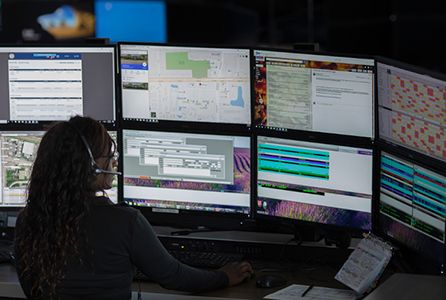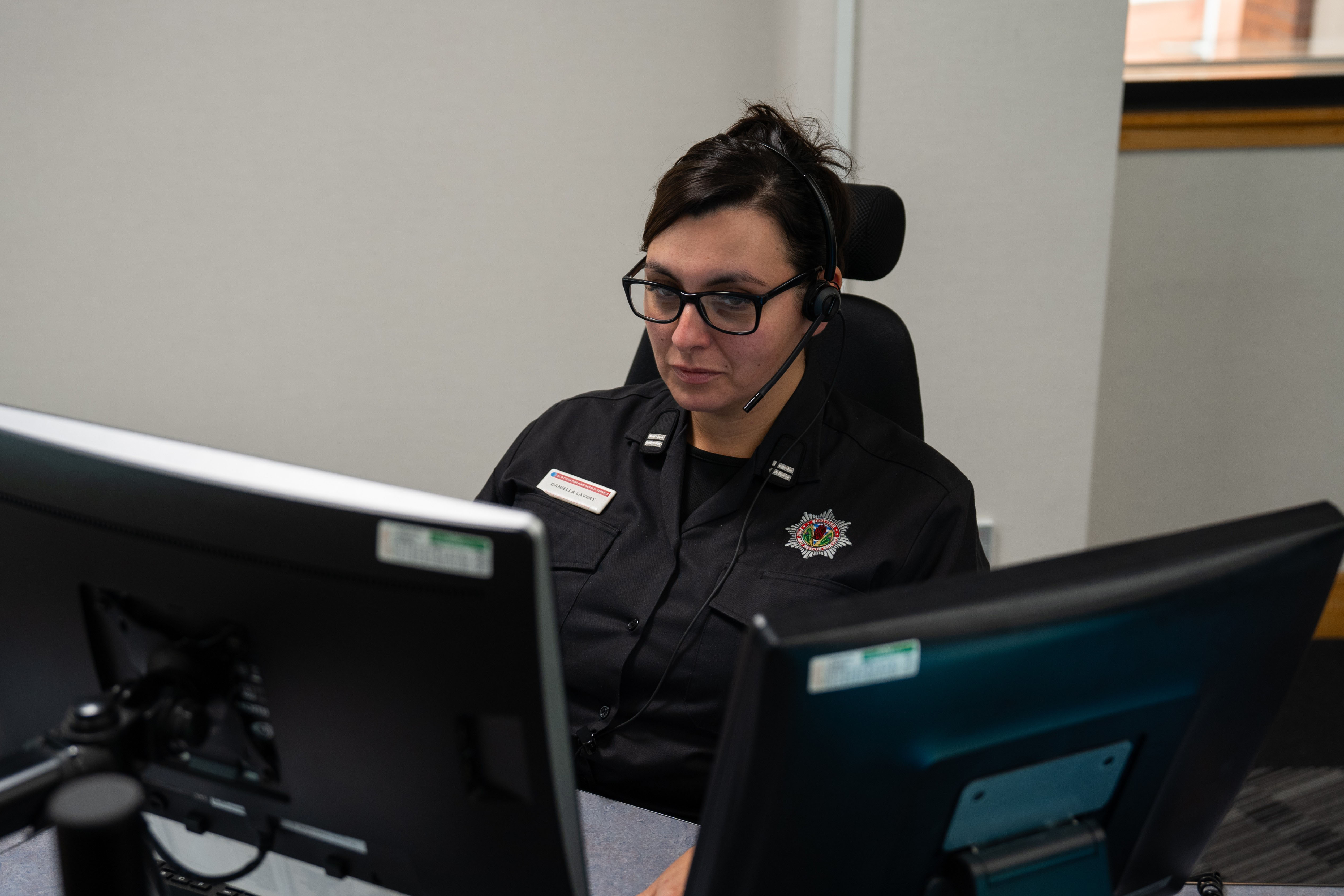While the majority of the Guardian public safety solution team have a control room background, we know a diversity of opinions and skills means better software – which is why we also recruit from all industries and walks of life. For International Control Room Week 2025, we chatted to some of our business analysts and technical project managers who didn’t start their careers in public safety, but have gained extensive insight into control rooms while working with our customers.
Rob’s story
I joined Motorola Solutions because a friend at the company thought I’d be a good fit, and he was right! I love the job and I wouldn’t change it for the world. I primarily work on the CAD side of the Guardian solution; I appreciate that the development team has thoroughly documented the software, both in terms of backend configuration and user-facing guides. The engineers take so much pride in what they do, and it really comes across in the product itself – especially considering how complex the CAD solution is. Whenever a customer requests a change to better fit their workflows, the product team jumps on it quickly.
I only started in this role back in June, and I’ve already put 4,000 miles on my car driving around the UK to meet customers. I was recently at a control room training day, and it was so nice to hear the control room staff getting excited about their new CAD. They really take to it like ducks to water, because it’s an intuitive system anyway.
One thing that surprised me when I started working in this field was the size difference between police and fire control rooms. I started working with the police first, where you have around 100 people in one room – then for fire, it’s closer to just four or five. FRSs also make use of our Pre-Determined Attendance (PDA) feature, where we recommend certain resources based on the incident type, while police forces don’t.
I couldn’t be a control room operator – I’m way too emotionally invested. Even thinking about some of the calls they take every day has me tearing up!
Rebecca’s story
Before I started working at Motorola Solutions, I did project management at a smaller company in Bournemouth who were focused on “tech for good” – charities, retirement living, that sort of thing – so I knew I wanted to stay in that sector. My brother is a police officer in Sussex who uses the Pronto app and a few other bits of our technology, so I already knew the terminology and it wasn’t a massive leap for me.
I basically lived in Suffolk for six weeks straight, getting their fire control room ready – we did it in record time, and worked with them from the ground up. They had told us that their control room tends to be a bit quieter, but the first call came in only a few minutes after we went live; it was a house fire, with multiple people inside. Seeing it all unfold in real time made me appreciate just how stressful their job is, and how well they deal with it. I recently went to the Suffolk Control Room Awards and the whole project team got a commendation from the Service, which was lovely.
I’ve worked here just over a year, and in that time I’ve realised that every FRS has different requirements due to their different geographies; Suffolk has quite a lot of rural land and a nuclear power plant, Norfolk has an airport and an RAF base, the West Midlands has Birmingham which is obviously a huge city with loads of high-rise buildings. So they all have different priorities and procedures based on the unique risks in their area.
One other thing I’d say is that a control room is made up of so many people; the operators are crucial, but so are the teams that support the systems and the uptime behind that. A lot of the time they’re the council IT teams who have regular nine to five jobs like us, but on top of that are also on call throughout the night for the fire and police services.
I really respect the control room operators I’ve met – I don’t think I would be able to put in the shifts they do, especially at three or four in the morning. Obviously our software helps make recommendations and simplify processes, but fundamentally the operators have the discretion to take the actions they think are most appropriate; I can imagine that’d be an intense feeling.
Garry’s story
The first time I visited a control room, I was surprised at how busy it was. They’re also very collaborative – everyone pitches in to help when a large incident starts unfolding. The fact that operators are able to multitask and absorb so much data simultaneously is always impressive to me. I have two screens in my office, and I don’t think I could add another one – especially when you consider that all of the screens in a control room are covered in vital, real-time information.
I talk to our customers pretty much every day. Without that close collaboration, it’d be difficult to make a system that meets their needs – customers have said they appreciate how much we’re in contact with them.
Working with the emergency services keeps you motivated, because you’re always reminded that the systems we provide are essential to keeping both the public and front line staff safe. Probably my proudest moment at Motorola Solutions was when we went live with Guardian ICCS and Guardian CAD at Bedfordshire FRS. When the first call came in, and all of the systems just worked together – that was amazing.
April’s story
I didn’t intend to work with the emergency services at first; I was just looking for a job in software. But I got lucky – it turned out to be the most rewarding thing I could do. I started in support, then moved to a business analyst role helping the customers set up their systems. I really enjoyed going onsite at go lives and working directly with the operators in the control room using our software.
The thing I like most about the job – and software in general – is seeing the whole lifecycle coming to fruition. That means working directly with the customers, understanding what problems they’re trying to solve, what’s important to them, and what could help make their job easier on a day-to-day basis. And then turning their feedback into requirements for the software, working with developers to actually bring those features to life, and then making sure that they come out the way that they’re supposed. I love seeing our work helping people in the real world who are doing such an important job. I guess it would be like that for any software job, but it’s just so much more interesting and fulfilling working for the emergency services because you’re helping to make their lives and jobs easier – which ultimately translates to keeping the public safe.
For more information about our control room solutions, please visit motorolasolutions.com/guardian.




